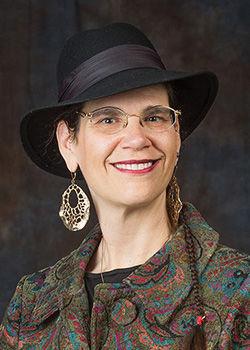If there is a night that is rich with peek moments, traditions and memories it is seder night! Imagine leading a communal seder of three hundred people in Dharamsala, India, where throughout the evening people trickle over to you whispering/yelling, "but you didn’t use the tune that we sing at home!" and all I can think then and there is: "But you made a choice to be thousands of miles from your home, living in a shack on the top of a mountain for a reason, didn’t you??? Surely it wasn’t to sing the melodies that you sang at home..." Smiling, I would keep that thought to myself... My mind always wanders back to that experience when preparing for Pessach.
For a moment, I’d like to ask you to see yourself at all the different seder tables that you’ve sat at in your lifetime. Whose table was it? Who was there? What did it feel like? What were the conversations about? Please observe how these variables change your feelings and memories.
Now I want to invite us all to sit at the same table! Have no fear - no plane tickets needed, no change in menu necessary. The shopping you’ve done is still relevant.
What would you do, how would you prepare, what would you need to know if I told you that this year (and every year to come) you would be sitting at God’s table???
I have seen two versions to the following teaching. One I learned from Rabbi Mickey Rosen, of blessed memory, and the other lurking in the Tosafot in their commentary on the Talmud teaching in B’rachot 42a. The first has to do with Rashi (yes, the Rashi) forgetting to pour the third cup of wine at sedernight before beginning to say birkat ha’mazon! What was he to do? Rashi, the owner of vineyards, and a seder of only 3 cups of wine? Could such a thing be? Can you have a seder with only three cups of wine? We are taught that even though he invited those sitting at the table to say birkat ha’mazon, by reciting the traditional invitation to begin the concluding blessing of the meal, he was allowed to pour the third cup, because of "A’tacha d’Rachamana Samchinan"!
Now go back to your memory bank and draw out all those amazing negotiations around the table regarding afikoman presents after an even more exciting scavenger hunt to find it. I remember some thirty years ago my brother asking my grandfather, jokingly, for help to buy a home in Israel as an afikomen present. A far call from grandpa’s traditional twenty five dollars... Jokingly grandpa replied, "When it’s relevant, give me a call..." Seriously, David responded, "It’s relevant. Dina and I are getting married!" It turned out that Dina pulled the same stunt in her home as a way of breaking the news...
With all these memories floating around, try to imagine forgetting to eat the afikomen(!). Imagine, after all these wonderful moments, a designated person invites all present to say birkat ha’mazonbefore everyone actually ate the afikomen! How does one conclude a seder without eating the afikomen? A taste in our mouth that is meant to bring us through the manna all the way back to the Garden of Eden and the wheat of the Tree of Knowledge!
It is here that Tosafot will pull out the same principle that availed Rashi to pour that cup of wine - Sitting at God’s Seder Table – A’tacha d’Rachamana Samchinan! In both cases we are taught that what defines the conclusion of the meal, and the shift of consciousness from one part of the dinner to the next is the consciousness of Ba’al Ha’bayit – the Master of the Home – and not any of the guests sitting at the table! Does this mean, for example, that Rashi was a guest at his own table?
Indeed, yes! It is here that we are taught that even though it may appear that we are the ones that engage in all the work and toil required for seder night, it is at the moment that we sit down that we are asked to surrender ownership of all that is in front of us and recognize that we are all the children of our Creator, and we are sitting together, regardless of where we may be geographically, at God’s table.
For this reason I would like to return to some of the questions that I posed in the opening - What would you do, how would you prepare, what would you need to know if I told you that this year, and for all years to come, you would be sitting at God’s table - A’tacha d’Rachamana Samchinan??? What would it mean to be set free of the enslavement of our self definitions and acquisitions / possessions? How can we open our heart and soul to be in life and belong to God in a way that we’ve never experienced before? What does it mean that our hands are no longer holding on to emotional, psychological and even spiritual territories that we have declared in the past as ‘mine’, allowing us to receive divine abundance like never before? For Rabban Gamliel, as we will read in the haggadah, seder night is defined by the three words "Pessach", "Matzah" and "Maror". For me, the prerequisite for this are the three Aramaic words "A’tacha d’Rachamana Samchinan"!
I pray that this seder night we will be blessed with the freedom and courage to sit together at God’s table! I pray that we will be able to greet each other with "shabbat shalom" and "chag sameach" as we sit down together; knowing, trusting and believing that indeed, A’tacha d’Rachamana Samchinan!
Shabbat shalom and chag sameach!

